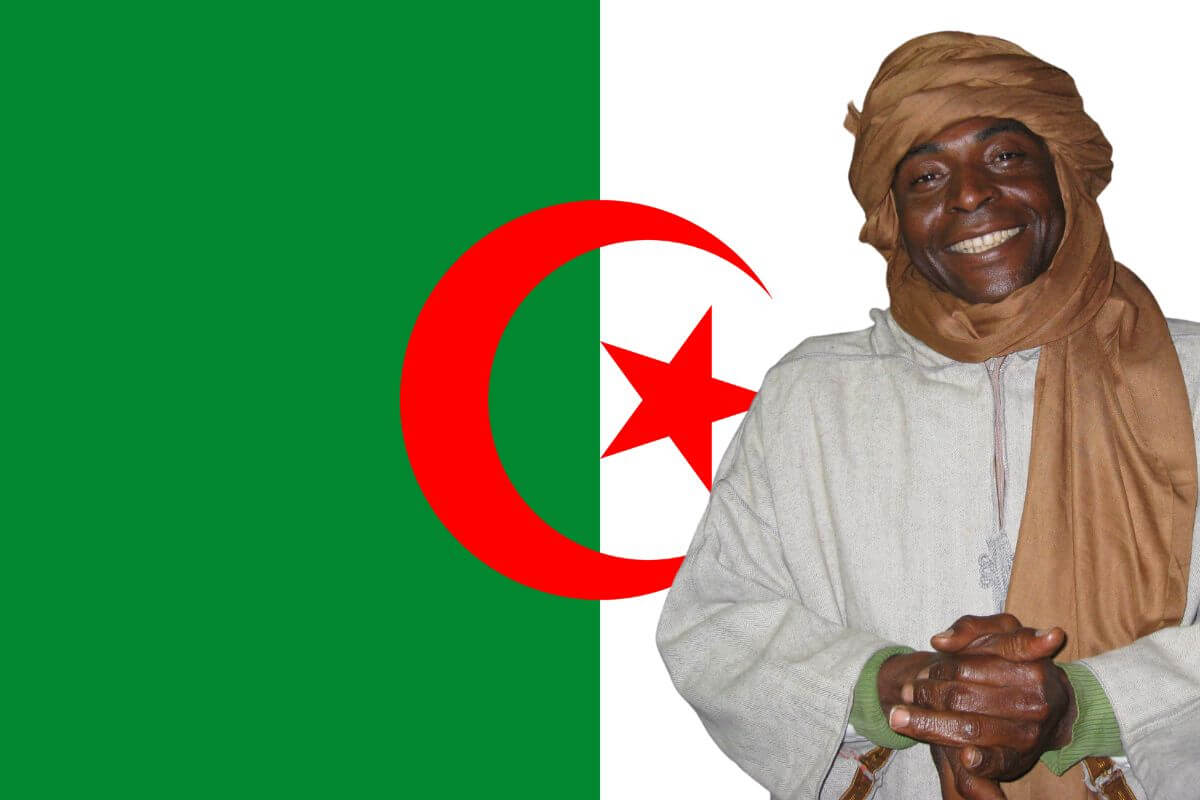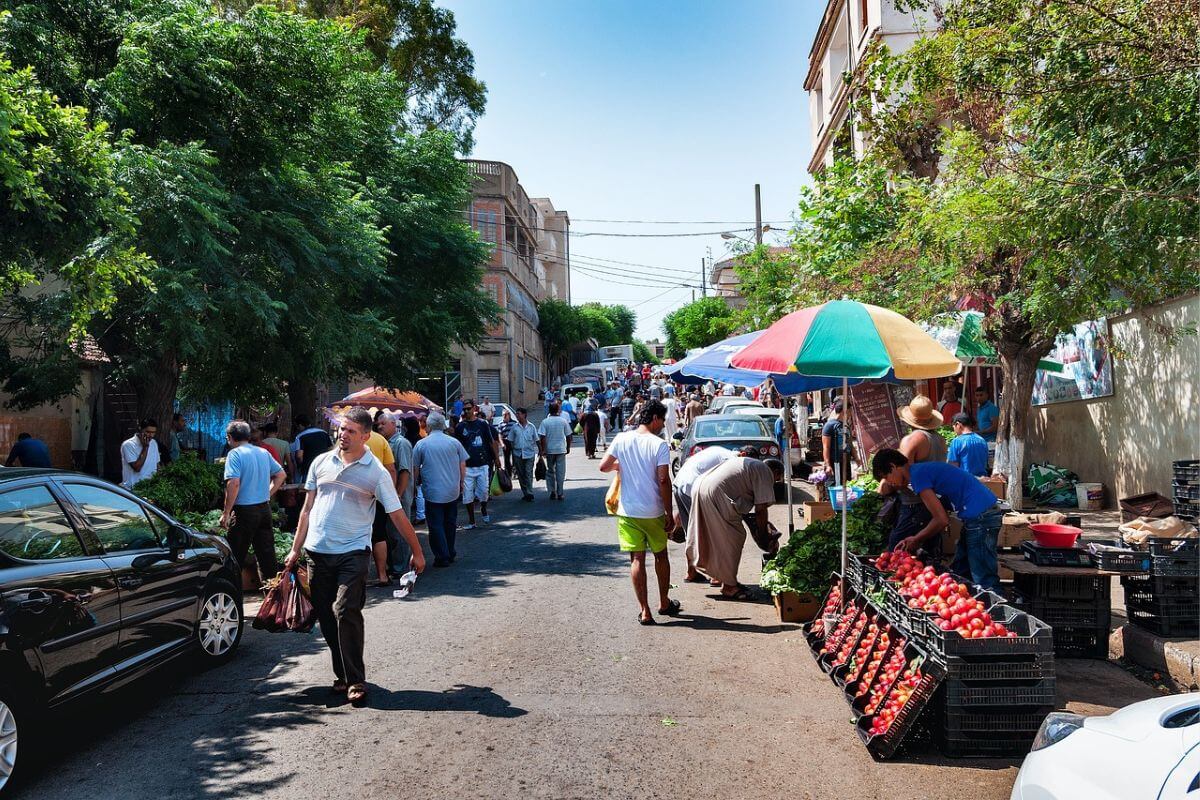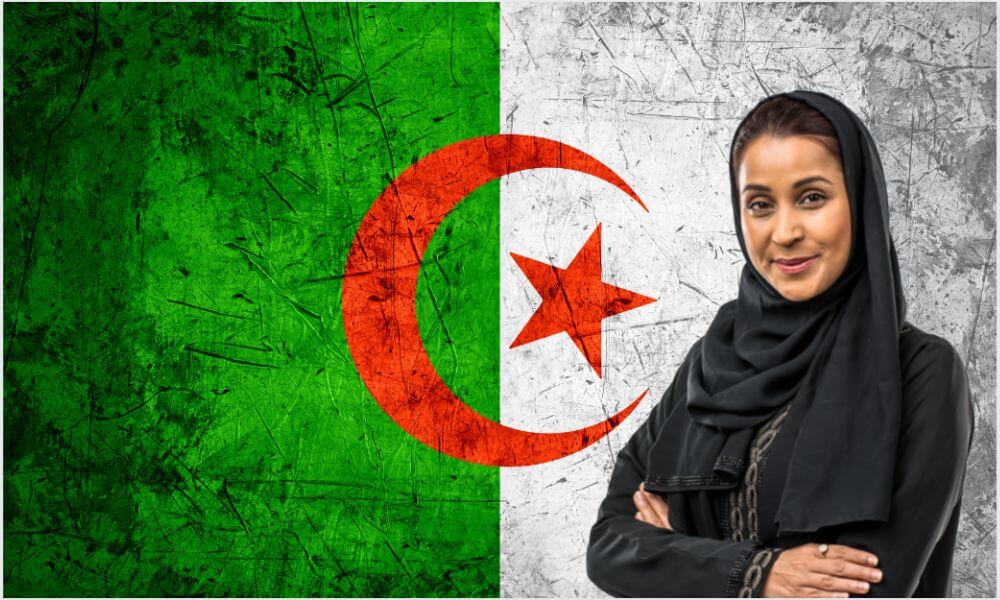Someone from Algeria is called Algerian. This is the standard demonym for a person of Algerian nationality or heritage. The algerian people are made up of a variety of different ethnic backgrounds, any individual of which are legally Algerian but may feel their ethnic identity to be the more important part of who they are.
So, as usual, there is a short answer and a long answer.
The short answer is that anyone of Algerian descent or nationality is called an Algerian.
On the other hand, there are many other ways you could be Algerian while simultaneously being something else; further, native Algerians may rather forefront their ethnic, rather than national, identity.
Let’s find out more.

What is someone from Algeria called?
Someone from Algeria is called Algerian.
This is the standard demonym used for a person of Algerian nationality.
This question of nationality, though, is a more complex one than you might at first think.
We have a very keen sense in the modern world, especially in the west, of what it means to be a citizen of a nation state.
This is always going to be an important aspect of who you are.
But historically, this is a very recent invention relatively speaking.
When it comes to Algeria, this is important for a few reasons.

Firstly, there are a few ways you might define yourself as Algerian.
Obviously, someone born to Algerian parents in Algeria will consider themselves Algerian.
On the other hand, someone born to Algerian parents outside Algeria may not have citizenship in Algeria, but they would doubtless feel their Algerian heritage to be very important.
Inversely, someone born to non-Algerian parents in Algeria would still feel themselves Algerian in a sense.
The real question, though, is of ethnicity.
The Algerian population comprises three primary ethnic groups.
- Arab
- Berber
- Arabized Berbers
The majority group, and the predominant ethnic background in the population, is Arab, representing around 73% of the country’s population.
Modern Standard Arabic is the country’s first official language.
The next 20% is made up of Berber people.
Berbers are a wide and diverse grouping of peoples indigenous to North Africa.
Another 3% of the population are made up, also, of Arabized Berbers.
These are, simply put, Berbers who have adopted Arabic language and culture.
All of this is simply to point out that the majority of Algeria’s population is made up of people who may prefer to identify with their ethnic background rather than with their nationality.
This is not of course universally true, it’s just something to keep in mind with this question.
Where does the name “Algeria” come from?
The name “Algeria” derives from the country’s capital, and historic city, Algiers.
This city was first recorded as a Carthaginian port town before it was subsumed into Roman rule after the Punic Wars.
In other words, the city is immensely old; far older than the nation state of Algeria.
Algeria was a French colony until 1962, when it gained independence and became the modern state of Algeria.
The name “Algiers” in turn derives from the Arabic al-Jaza, meaning the four islands, in reference to the four islands off the coast of the city.
It gained this name in the year 950, when the city was established on the ruins of the old Phoenician city.
Algiers, then, gets its name from its historic capital city, far older than the country itself.
Is Algeria French speaking?
Algeria is not official French speaking. Its two official languages are Arabic and Tamazight, the language of the Berber people.
That said, large parts of the Algerian population do speak French at least as a second language due to the nation’s historical colonial ties.
Around a third of Algerians today speak French, and it is still the official policy to teach the language in elementary school.
Algerian Arabic, though, is its own separate dialect and is the language used day to day by the majority of the population.
Modern Standard Arabic, though, is the form of the language which is the nation’s official language.
Language can often be an even more complex question in a place like Algeria, where many ethnic groups live alongside one another on top of the influence French still has on the country and its people.
But in no real, useful sense is Algeria French speaking–it is not a first language for the vast majority of the population.
Where do Algerians live?
With that said, considering the reach of the Algerian diaspora is a vital part in the complete picture of the country’s identity today.
There are an estimated 50 million Algerian people worldwide.
Of that, most of them, of course, live in Algeria itself–around 44 million of them.
The next largest population of Algerian people, unsurprisingly, is in France, where there are around 5 million Algerians.
This is very often the case in former colonies and can be seen in Britain and Portugal, too.
Beyond that, there are large populations of Algerians in Spain, Canada, and the United Kingdom, among other places.
The point is simply that Algerian nationality or identity does not have to be limited to the country itself by any means.
To be Algerian, then, might mean different things for different people–as it would for just about any given nationality.
Obviously, identity is a very individual thing even at the cultural, ethnic, and national level.
In general, though, Algeria is defined primarily by three dominant ethnic groups, and depending on the individual, this aspect may be the more important part of who they are than the Algerian side of it.
More in Demonyms
- What Do You Call Someone From Afghanistan?
- What Do You Call Someone From Algeria?
- What Do You Call Someone From Argentina?
- What Do You Call Someone From Australia?
- What Do You Call Someone From Azerbaijan?
- What Do You Call Someone From Bangladesh?
- What Do You Call Someone From Barbados?
- What Do You Call Someone From Belgium?
- What Do You Call Someone From Botswana?
- What Do You Call Someone From Crete?
- What Do You Call Someone From Denmark?
- What Do You Call Someone From Ecuador?
- What Do You Call Someone From Egypt?
- What Do You Call Someone From El Salvador?
- What Do You Call Someone From Fiji?
- What Do You Call Someone From Finland?
- What Do You Call Someone From France?
- What Do You Call Someone From Ghana?
- What Do You Call Someone From Greece?
- What Do You Call Someone From Greenland?
- What Do You Call Someone From Hong Kong?
- What Do You Call Someone From Iceland?
- What Do You Call Someone From India?
- What Do You Call Someone From Ireland?
- What Do You Call Someone From Israel?
- What Do You Call Someone From Japan?
- What Do You Call Someone From Jersey?
- What Do You Call Someone From Jerusalem?
- What Do You Call Someone From Jordan?
- What Do You Call Someone From Kazakhstan?
- What Do You Call Someone From Laos?
- What Do You Call Someone From Malta?
- What Do You Call Someone From Myanmar?
- What Do You Call Someone From Niger?
- What Do You Call Someone From Pakistan?
- What Do You Call Someone From Panama?
- What Do You Call Someone From Peru?
- What Do You Call Someone From Rwanda?
- What Do You Call Someone From Singapore?
- What Do You Call Someone From Sri Lanka?
- What Do You Call Someone From Sweden?
- What Do You Call Someone From Switzerland?
- What Do You Call Someone From Thailand?
- What Do You Call Someone From The Isle of Wight?
- What Do You Call Someone From The Ivory Coast?
- What Do You Call Someone From The Netherlands?
- What Do You Call Someone From Uzbekistan?
- What Do You Call Someone From Vatican City?
- What Do You Call Someone From Wales?
- What Do You Call Someone From Zimbabwe?


